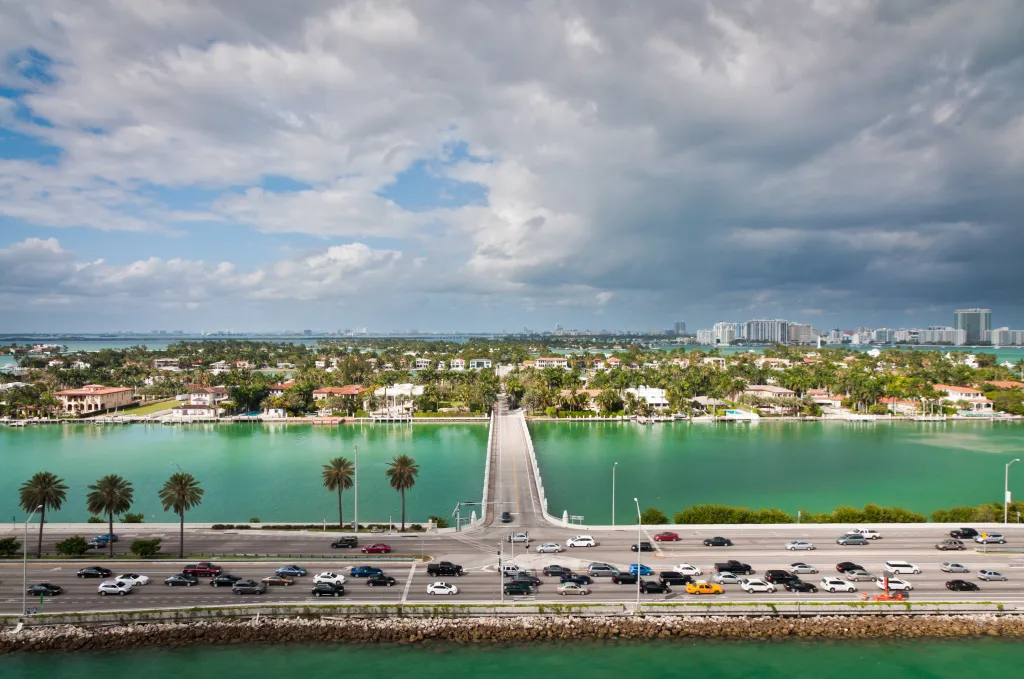Miami Beach, a city founded on the principle that nothing should ever take longer than ordering a cortadito, has finally admitted defeat. The traffic is bad—biblically bad—and the municipal solution is wonderfully literal: water taxis.
For the second year in a row and beginning on December 1, the city will run a small flotilla of free boats shuttling people between Miami Beach and the mainland every ten to fifteen minutes, complete with connecting shuttles to the Convention Center and Collins Avenue.
You don’t institute ferry service unless the roads have staged an outright mutiny. Yet, a few months ago, when ARTnews reported that traffic on the causeways had become one of several reasons longtime exhibitors were drifting away from NADA’s inland fairgrounds, a handful of unnamed art-world worthies, in angry whispers and consolatory text threads, pronounced the claim absurd.
Perhaps they believed that during Miami Art Week—when a ten-minute trip reliably metastasizes into an hour-long crawl—the city’s gridlock was some sort of romantic fiction. (Dealers, however, some of whom said collectors “literally give up halfway through” the drive, would beg to differ. One called it “almost impossible to deal with.”)
The truth is nobody objects to the description of traffic on the causeways or anywhere else in Miami, not even the city itself.
But the arrival of the water taxis gives the game away. Cities do not deploy maritime transit because journalists are catastrophizing. They do it when roads have stopped functioning as roads and started behaving like bad conceptual art—dense, static, and impossible to explain to an outsider. Miami Beach isn’t solving a problem so much as acknowledging it in the way Miami does best: with a glossy, high-visibility gesture and an art week branded map.
And honestly, it’s charming. There’s something beautiful about the idea of VIPs and curators queuing up at a marina the way they do in Venice, but with bellies full of rum and high-octane espresso instead of Aperol and champagne. See you on the water.
